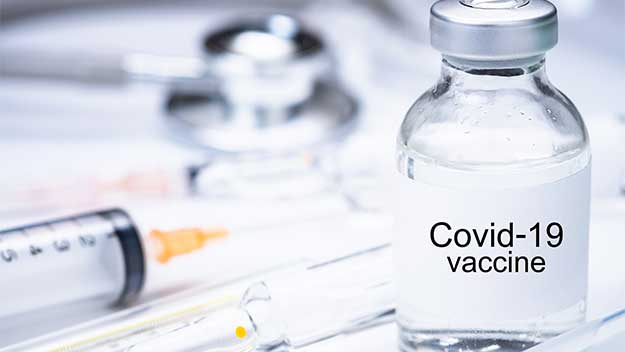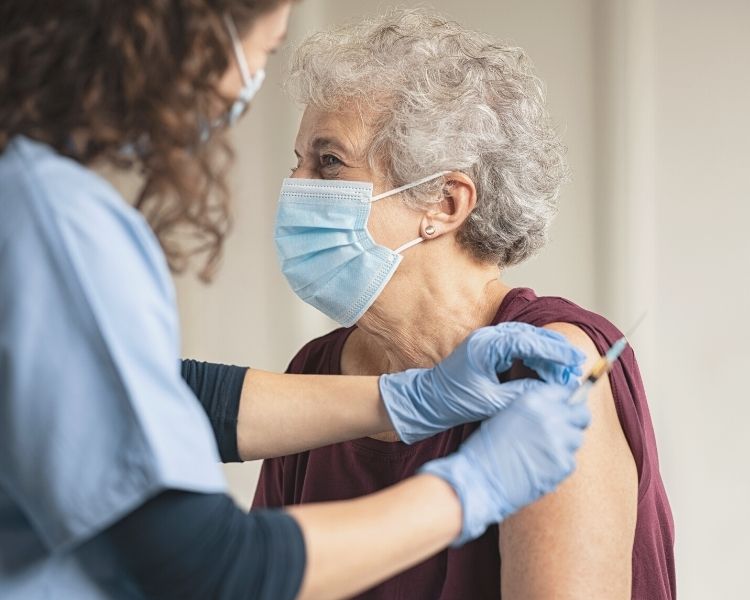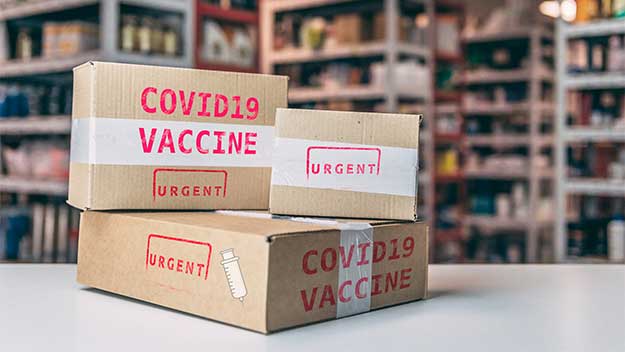Short Term VS Long Term Effects and the Unknown
Just as important as understanding the mechanism, is understanding the potential side-effects associated with the vaccine. The COVID vaccine has common, documented short-term side effects based on the results of clinical trials; they include the following (1):
- Pain at injection site
- Fatigue
- Headache
- Muscle pain
- Chills
- Joint pain
- Fever
Equally important to consider, are the potential long-term effects that the vaccine may cause. Experts predict that the probability of long-term effects is minimal and that the risks of the COVID-19 virus outweigh the known and unknown risks of the COVID vaccine. According to an FDA briefing, “The risk of vaccine-enhanced disease over time remains unknown and still needs to be evaluated further in ongoing clinical trials (3).”
What are the Benefits of the mRNA COVID-19 Vaccine?
- The data collected in clinical trials shows that the vaccine is 95% effective in protecting against COVID-19 starting 7 days after the 2nd dose.
- Getting vaccinated may also protect the people around you, particularly those at high risk for severe illness from COVID-19.
- The vaccine will help to protect you by creating an antibody response without having to experience the full illness of COVID-19 (1).
- The economic and overall burden on society would be dramatically reduced with effective vaccination at a population level.
 Questions About the Covid Vaccine:
Questions About the Covid Vaccine:
If I had COVID-19 or took a test that showed that I have antibodies should I get the COVID vaccine?
Yes. Even if you have had COVID-19 and/or have the antibody, it is safe to get the vaccine and this can add additional protection without further harm.
What happens if I only get 1 of the 2 doses?
The data shows that you would only be partially protected from the virus after one dose. It is strongly recommended that you receive both doses of the vaccine.
If I have received both doses of the vaccine and it is 2 weeks after my 2nd shot, do I still have to wear a mask?
Yes. Even though you have received your vaccine, most of those around you have not. Wearing a mask, social distancing, and proper hand hygiene protect those who have not been vaccinated.
Can I get an antibody treatment instead of the COVID vaccine?
No. The antibody treatment would only provide short-term protection and is currently only approved by the FDA as a treatment for those currently infected with the virus. The vaccine provides a longer lasting immune response.
Will I test positive for COVID-19 after receiving the vaccine?
No. The test for COVID-19 determines if you have a current infection. Because the vaccine does not contain the live virus and cannot cause a COVID-19 infection, you will not test positive as a result of the vaccine. However, you will likely test positive for antibodies, which means that the vaccine has successfully produced an immune response.
Questions that Remain Unanswered, Awaiting Time and Further Clinical Data
- What is the safety and efficacy of the vaccine for pregnant women, children, and immunocompromised patients?
- How long will your strengthened immunity last?
- Does the vaccine prevent infection or just prevent the development of symptoms?
- What are the long-term effects on the body?
Understanding the mRNA COVID vaccine is instrumental in the reduction of the spread of COVID-19. The potential for risk versus the potential benefit should be the basis for decision–making on receiving and promoting this vaccine. As nurses, being knowledgeable about the vaccine will allow you and your patients to make informed decisions. This vaccine will have a monumental impact on the trajectory of the COVID-19 pandemic. It is our responsibility as nurses to be fully committed to understanding the vaccine in order to educate and meet the needs of our patients. Click here to view Nursing CE Central’s comprehensive COVID-19 Course for nurses.





 Understanding the mRNA COVID Vaccine and How it Works
Understanding the mRNA COVID Vaccine and How it Works Questions About the Covid Vaccine:
Questions About the Covid Vaccine:
